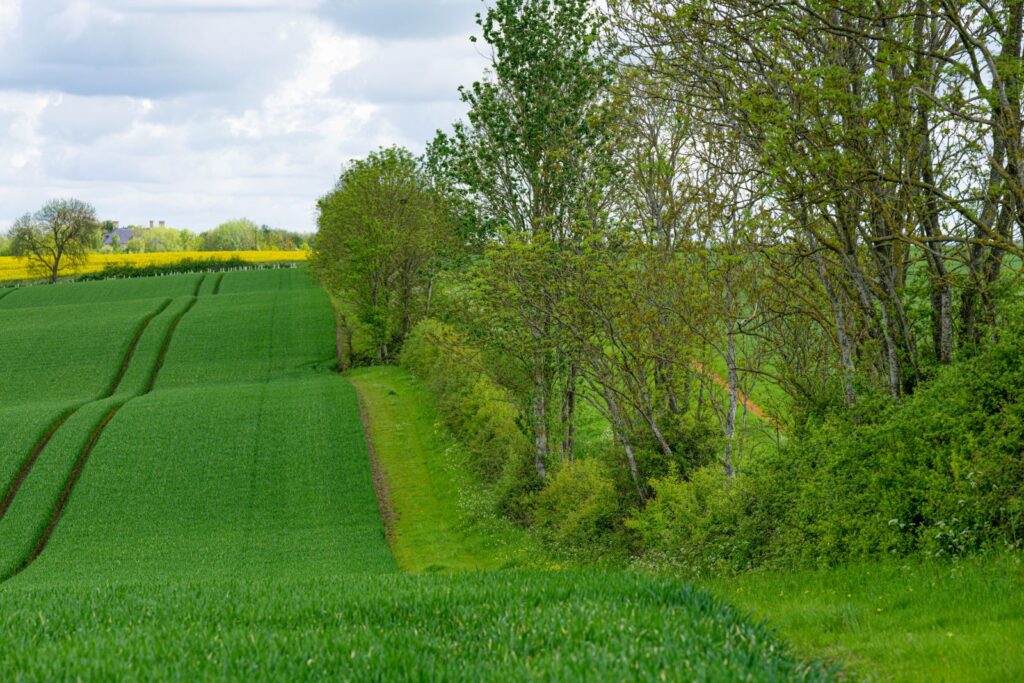Farming collective shines spotlight on the value of wildlife corridors
12th June 2023
Natural wildlife corridors such as hedgerows and trees are essential for preserving biodiversity, which is why UK dairy cooperative Arla is encouraging farmers and the public to create spaces for wildlife and help halt the decline of natural habitats throughout Britain.
The UK’s loss of hedgerows, typically found on farms, has been identified as a key factor in the decline of many plant and animal species across the nation, but most Brits are unaware of the key role they play.
Alongside protecting wildlife, hedgerows can also be hugely valuable thanks to their stability, undisturbed soils, diversity, and seedbanks which is why they should be maintained, protected, and nurtured wherever possible.
Research from Arla found that 64% of Brits are unaware that a typical hedgerow can support over 2,000 different plant and animal species and over a third (35%) are not aware we have lost many hedgerows in the last 80 years.
Findings also reveal that 85% of Brits say they believe that protecting the environment and the UK’s wildlife is important yet 43% are unsure how they can make an impact
Cambridgeshire farmer Oliver Williams, who is also an Arla farmer and advocate of protecting local wildlife, said: “Hedgerows benefit all small species, especially hedgehogs, which is why I take great care in ensuring they are protected and nurtured at all costs.
“On my farm, I’ve recently established a new area of woodland to grow new hedges and nurture existing hedgerows, helping to create natural breaks in the countryside and small populated habitats for our small and prickly friends. Protecting the environment is so important, and there are many ways you can, even if you aren’t a farmer!”
To tackle the decline of our natural habitats, Arla and the People’s Trust for Endangered Species (PTES) have joined forces to help more people create their own wildlife-friendly gardens and green spaces.
Rachel Campbell, director of the Arla Brand & Sustainability, said: “We’re excited to partner with the PTES to help educate the nation and highlight the importance of protecting the UK’s hedgerows.
“Our farmers who are choosing to maintain and plant new hedgerows to act as wildlife corridors for Britain’s declining species are doing a brilliant job, but it’s a journey that we as a nation, should all be collectively looking ahead to.”
As part of the Arla C.A.R.E. programme, under which 2,200 acres of land has been left fallow for wildlife to flourish, farmers are also encouraged to take active steps to improve biodiversity and the provision of wildlife habitats. These include installing and managing wildlife corridors, hedgerow maintenance and installation, and creating other habitats such as hedgehog highways and barn owl boxes.
According to Arla, you don’t need to be a farmer or own acres of land to become a landlord to a diverse population of wildlife, which is why the cooperative has teamed up with the PTES to inspire more people to replicate some of the actions being taken on farms in their own gardens or local outside areas.
Megan Gimber, key habitats officer at PTES, added: Healthy hedgerows have the potential to benefit wildlife and the environment, whilst still being a valuable asset for farms. As an individual, there are simple actions you can take to mimic the biodiversity of hedges in your own back garden and turn your green space into a wildlife haven.”
To learn more about Arla’s C.A.R.E programme and ways you can contribute to protecting wildlife, visit: http://arlafoods.co.uk/sustainability/protecting-nature/wildlife-havens/



